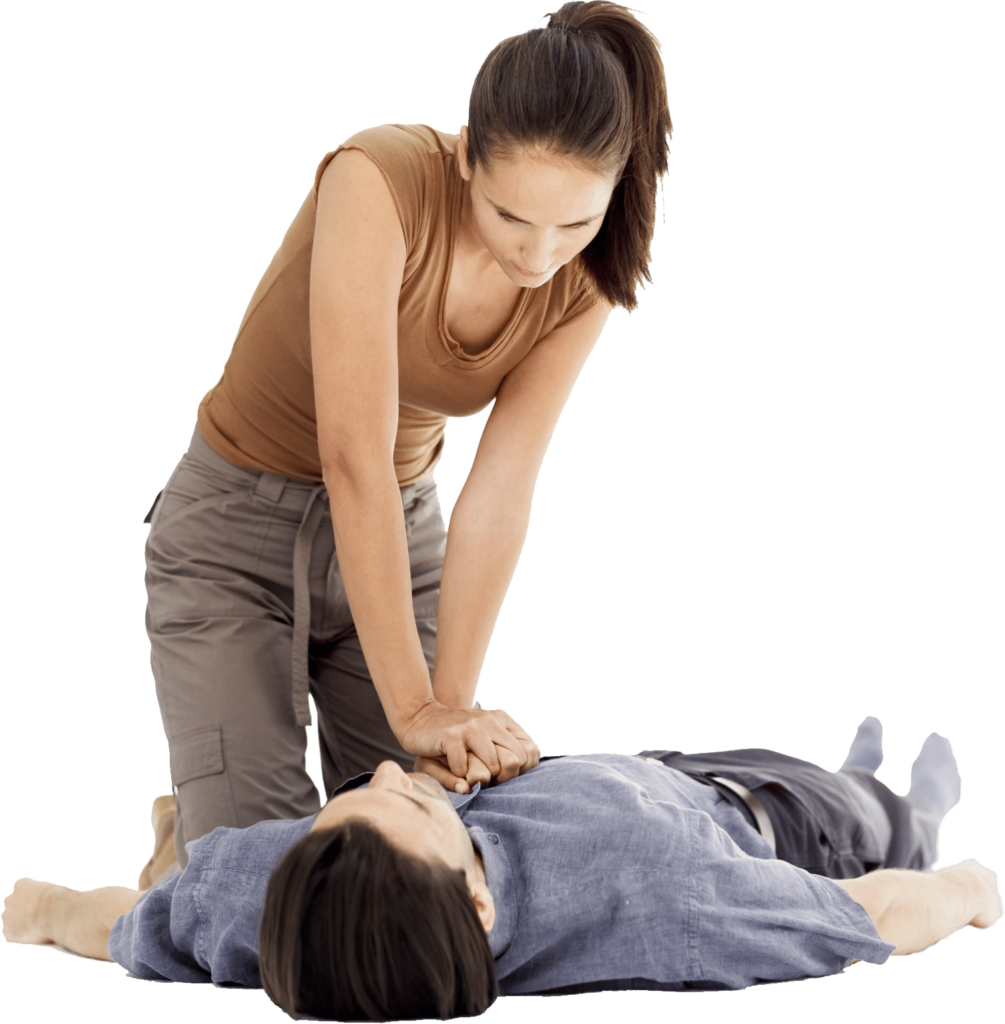

Basic Life Support (BLS) training teaches essential skills for responding to life-threatening emergencies. It focuses on maintaining blood flow and breathing through techniques like chest compressions, rescue breaths, and using an AED. These skills are crucial for healthcare professionals who are often the first responders in emergencies.
Basic Life Support is a level of medical care used in emergencies until the person can receive full medical treatment. BLS training focuses on ensuring that a person’s blood circulation and breathing are supported when they cannot maintain these functions on their own. This involves techniques like chest compressions, rescue breaths, and using an Automated External Defibrillator (AED).
Knowing BLS is critical for anyone who may face life-threatening situations, especially healthcare professionals. The training helps individuals respond confidently and effectively to emergencies, which can make a huge impact during those first critical minutes. Familiarity with BLS protocols ensures that proper steps are taken, increasing the chances of survival and recovery.
BLS training is not just for healthcare workers; it’s also valuable for educators, parents, and anyone who wants to be prepared for emergencies. It equips you with the skills needed to act quickly and correctly until professional help arrives.
BLS training provides healthcare professionals with essential skills that are vital in emergency situations. Here are some key benefits:
1. Improved Patient Outcomes: Quick and effective BLS training can significantly improve a patient’s chances of survival and recovery. Healthcare professionals trained in BLS are better prepared to act immediately, which is crucial in emergencies.
2. Confidence in Emergencies: BLS training boosts confidence in handling critical situations. Knowing exactly what to do reduces panic and ensures that care is provided quickly and efficiently.
3. Enhanced Team Coordination: BLS training often includes team scenarios where professionals learn to work together. This coordination is vital in real-life emergencies where teamwork can improve patient care.
4. Professional Requirement: For many healthcare roles, BLS certification is a must. Keeping your BLS training and certification up-to-date ensures that you meet professional standards and regulatory requirements.
Taking BLS training is a proactive step for any healthcare professional who wants to excel in their field. It ensures that you are prepared, confident, and capable of saving lives when it matters most.
Basic Life Support training covers several key components that prepare you to handle emergencies effectively. Here are some of the main areas you will learn about:
1. Chest Compressions: Learn how to correctly perform chest compressions to maintain blood flow. This involves knowing the right depth and rhythm for compressions.
2. Rescue Breaths: Understand how to give rescue breaths to provide oxygen to a person who isn’t breathing. You’ll learn proper techniques to ensure effectiveness.
3. AED Usage: Training includes how to use an Automated External Defibrillator (AED). This device can help restart a heart that has stopped beating. You’ll learn how to use it safely for adults, children, and infants.
4. Heimlich Maneuver: Get trained on how to perform the Heimlich maneuver to remove airway obstructions. This is crucial for choking emergencies.
5. Team Coordination: Learn how to work efficiently as a team during an emergency. Effective communication and coordination can save lives.
These components ensure that you have a well-rounded understanding of life-saving techniques. Mastering these skills is essential for anyone who may encounter emergencies, particularly healthcare professionals.
Enrolling in our BLS certification classes in Dallas is easy and convenient. Here’s how you can get started:
1. Choose a Class Schedule: We offer classes every Thursday evening and Saturday morning. Choose the time that works best for you.
2. Register Online: Visit our website to register for the class. The process is quick and straightforward.
3. Attend the Class: Each class lasts approximately 3 hours. You’ll receive hands-on training from experienced instructors.
4. Complete the Course: After completing the course, you’ll receive an American Heart Association CPR Certification E-Card. This card is accepted everywhere and guarantees your certification.
5. Receive Certification: You’ll get your certification card on the same day you complete the course. All certifications are valid for two years, ensuring you stay prepared for emergencies.
Taking these steps will ensure you are well-equipped to handle medical emergencies with confidence. Enroll today and take the first step towards becoming BLS certified.
Basic Life Support training is vital for healthcare professionals and anyone who may find themselves in an emergency situation. The skills learned from BLS training, such as chest compressions, rescue breaths, and AED usage, are essential for saving lives. The BLS training builds confidence and prepares you to act quickly and effectively when every second counts.
If you’re ready to get certified, join us at Rapid CPR Dallas. We offer comprehensive basic life support certification classes in Dallas that cover all the essential components. Sign up for our training sessions held every Thursday evening and Saturday morning, and get certified on the same day. Enroll today and be prepared to save a life.

